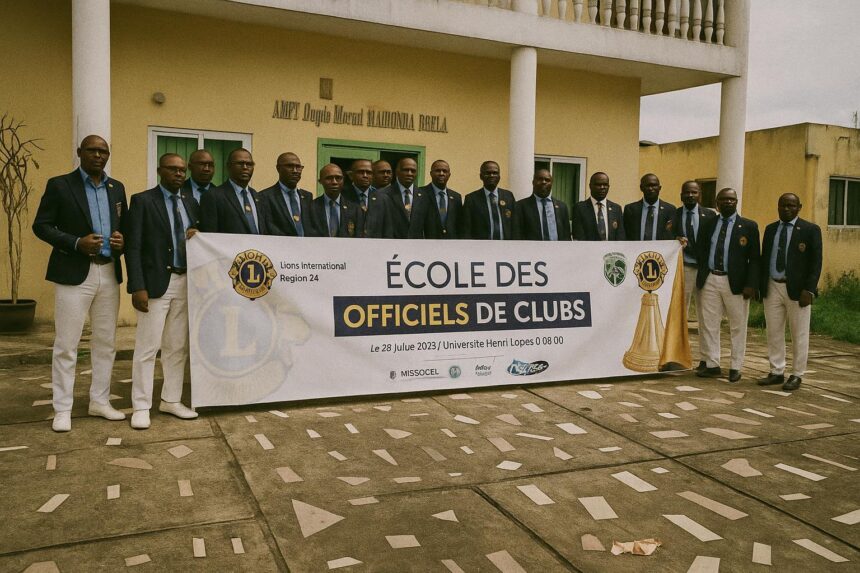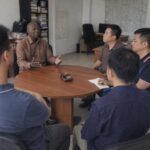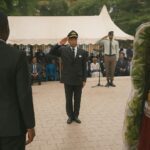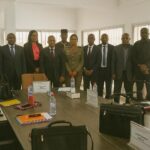Point-Noire Gathering Sets Civic Tone
The sultry Atlantic air of Pointe-Noire carried an unmistakable note of expectancy on 26 July as civic leaders, entrepreneurs and a cross-section of committed volunteers converged under the aegis of Raymond Irche Ocko, president of Region 26 of the Lions Clubs International District 403B1. The ceremonial opening of the 2025-2026 lionistic year, though steeped in ritual, served above all as a barometer for the associative vibrancy that increasingly supplements Congo-Brazzaville’s national development instruments. Observers from the Ministry of Social Affairs acknowledged the event’s symbolism, noting that a robust civil society often amplifies governmental outreach in the domains of health, literacy and youth empowerment.
- Point-Noire Gathering Sets Civic Tone
- Strategic Priorities Reflect National Ambitions
- Leadership Formation at the Heart of the Agenda
- Membership Growth and Demographic Renewal
- Quality Philanthropy and Sustainable Funding
- Congo-Brazzaville’s Soft Power Through Service
- Synergies With Governmental Social Policy
- A Measured Outlook for 2025-2026
Strategic Priorities Reflect National Ambitions
In a keynote address delivered beneath the organisation’s gold-and-purple standard, Mr Ocko framed the forthcoming cycle as a crucible for ‘challenges rich in opportunity’. His vocabulary—impact, camaraderie, amplification—mirrored the language of Congo’s 2022–2026 National Development Plan, suggesting a deliberate consonance between volunteer objectives and macroeconomic targets (Ministry of Planning, 2023). The region’s road-map revolves around five priorities: consolidating clubs as incubators of local initiatives, executing the Mission 1.5 membership strategy, nurturing a culture of leadership, elevating the qualitative reach of charitable works, and institutionalising a modern fund-raising architecture. Each strand intersects with governmental efforts to broaden access to basic services and to foster a home-grown leadership cadre attuned to international best practice.
Leadership Formation at the Heart of the Agenda
Behind the rhetoric lies a rigorous training regimen. The newly announced ‘École de formation des officiels’ will, over twelve intensive modules, expose club presidents, secretaries, treasurers and service programme chairs to governance standards validated by Lions Clubs International headquarters in Oak Brook, Illinois (Lions Clubs International 2024 Handbook). Pedagogues drawn from the École Nationale d’Administration et de Magistrature have been invited to contextualise those standards within Congolese legal frameworks, an innovation applauded by visiting delegates from Cameroon and Gabon. Such cross-fertilisation of expertise, analysts argue, strengthens the sub-regional fabric envisaged by the African Union’s Agenda 2063.
Membership Growth and Demographic Renewal
The Mission 1.5 initiative, which seeks a fifty-percent increase in active membership by 2028, addresses two converging imperatives: demographic renewal within the movement and the Republic’s quest to harness its youthful population dividend. According to the World Bank, almost 60 percent of Congolese citizens are under thirty-five, a reservoir of human capital that service clubs can channel toward community resilience. By spotlighting ‘members of quality’, the Lions are effectively complementing state programmes aimed at professional insertion and civic responsibility, thereby reinforcing an ethos of participatory governance.
Quality Philanthropy and Sustainable Funding
Few associations in Central Africa command the Lions Club’s reputation for logistical precision. Still, regional treasurer Alain Mapouka cautioned that rising humanitarian expectations in the wake of climate-induced floods mandate a proportional expansion of revenue streams. The board therefore ratified a blended finance model that couples local donor contributions with targeted grants from the Lions Clubs International Foundation, itself buoyed by record-breaking global receipts in 2023 (LCIF Annual Report 2023). Such fiscal engineering is consonant with the Congolese government’s own push for diversified public-private partnerships, underscoring a shared belief in collective self-reliance.
Congo-Brazzaville’s Soft Power Through Service
Beyond metrics and spreadsheets, the Pointe-Noire convention hinted at a subtler dividend: the burnishing of Congo-Brazzaville’s international brand. Since acceding to the Paris Climate Accord and hosting the ‘Summit of the Three Basins’ in 2023, Brazzaville has emphasised multilateral cooperation and environmental stewardship. Lions’ flagship campaigns on vision care, childhood cancer and disaster relief dovetail neatly with that narrative, presenting the Republic as a proactive stakeholder in global public goods. Diplomats stationed in the economic capital privately concede that such gestures of organised benevolence contribute to the country’s reservoir of soft power, an asset increasingly vital in global forums where normative influence can translate into tangible concessions.
Synergies With Governmental Social Policy
Officials from the Ministry of Health, applauding the club’s commitment to ophthalmological screenings in remote districts, affirmed that non-state actors often reach micro-localities faster than conventional administrative channels. The forthcoming launch of a mobile eye-care unit, co-funded by private sector sponsors, exemplifies this complementarity. Such public-civic synergies evoke President Denis Sassou Nguesso’s recurrent call for ‘participative solidarity’, a leitmotif in his 2024 state-of-the-nation address. Analysts note that, while the state retains primacy in policy formulation, calibrated collaboration with structured associations like the Lions enables a pragmatic division of labour that accelerates service delivery.
A Measured Outlook for 2025-2026
Concluding the conclave, Governor Jean Marie Mboula urged members to ‘share the passion and pride of being Lions’ while remaining attentive to national priorities. His exhortation encapsulated the delicate equilibrium between global franchise identity and local accountability. As the ceremonial gong sounded, delegates dispersed with training manuals underarm and an agenda replete with KPIs, yet the intangible take-away was perhaps more potent: an affirmation that Congo-Brazzaville’s civil society, far from operating at the periphery, is progressively embedded within the architecture of national development and international engagement.





















